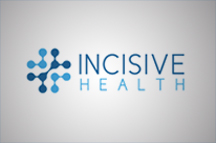What might you have missed on Twitter? Read our summary of interesting things we’ve noticed in the past seven days.
- Twitter was, well, all a twitter about @MichaelEPorter speaking at #reformMEP. Here are his slides.
- Is workforce planning a zero sum game? @JonNHSNorwich thinks so and is concerned about the impact that mandatory staffing ratios could have on new models of care.
- Our own @BillMorgan82 returned to the issue of competition in the Health Service Journal, arguing that debate about the OFT is a sideshow.
- An update on the ‘Treasury view’ – or at least John Rentoul’s summary of Sir Nick Macpherson’s view of it.
- This is a moving interview with Eric Ollerenshaw MP on his partner’s death from pancreatic cancer.
- The story of how a contagious dog cancer went global.
- The Wellcome Trust is putting its library of medical cartoons online.
- Is #YODO the new #YOLO? A BBC piece on why people are using a Twitter hashtag to discuss their end of life care wishes.
- Two different perspectives on the power of big data - @GeraintLewis on care.data and @JoBrodie on dangers of jigsaw identification.
And in America:
- Help mark 50th birthday of @ASCO by voting on your top five advances against cancer.
- The Commonwealth Fund data centre is a great resource for comparing the performance of different US health systems.
- The quest for efficiency in America. A fascinating New York Times article on the drivers of cost variation in dermatology.
- Is it okay to fire my oncologist? A revealing example from America of the impact of non-patient-centred care and how one patient addressed it.
- An interesting summary of the state of play on plans for single-payor healthcare Vermont style.
And finally:
- The new evidence-based hierarchy... and here is the social media element of it explained.
Incisive Health is the new force in health policy and communications. In an NHS environment that is noisy, changing rapidly and where decision-makers are under intense pressure, policy communications need to be incisive to make an impact. We know how to cut through the noise and competing priorities to deliver results that enhance our clients' businesses and reputations and – ultimately – improve healthcare for patients.














